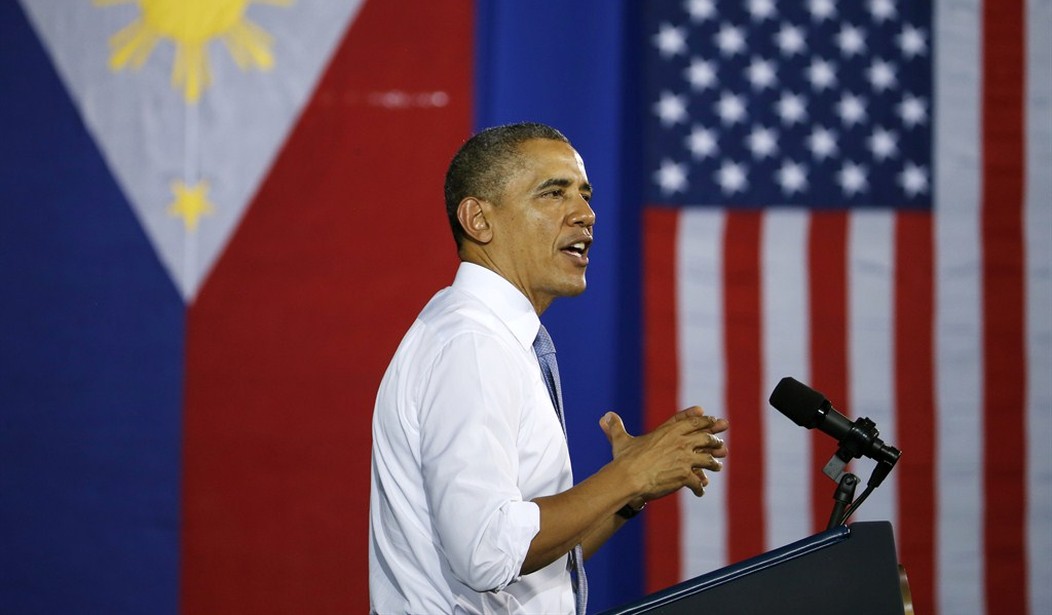As President Obama concludes his tour of Asia, one of the most pressing issues he discussed with his counterparts is the Trans-Pacific Partnership (TPP), a trade agreement currently under negotiation between the United States and eleven other nations on both sides of the Pacific Ocean. Two of these countries – Japan and Malaysia – are stops on the President’s tour, and his visit to the region is a sign of how important the Trans-Pacific Partnership is to American trade policy and our overall foreign policy. TPP is also critical to jump-start a lagging U.S. economy.
The Asia-Pacific region is already home to some of our biggest trading partners, including President Obama’s first stop in Japan, our fourth-largest partner. On the other side of the Pacific, Canada and Mexico are first and third respectively. While the United States already holds individual Free Trade Agreements (FTAs) with several countries that would become part of the Trans-Pacific Partnership, signing the agreement would open up exciting new markets like Japan, Malaysia and Brunei to the top-notch goods and services provided by American workers.
TPP countries contribute about 15 percent of all global trade, and in 2012, the U.S. traded more than $1.5 trillion in goods with these nations alone. And this market is only getting larger. Since 2006, the goods trade has seen a 44 percent increase with our existing FTA partners in the region, while the services industry has seen a 42 percent spike. This is good news for American workers and taxpayers. Trade with TPP countries supported nearly 15 million American jobs in 2011. If we are able to remove trade barriers and strengthen investment ties with these nations by signing this agreement, the growth potential is enormous. Taxpayers benefit because government will bring in more tax revenue without raising taxes.
However, there’s still work to be done here at home before we can expand our trade presence abroad. To advance TPP and other trade agreements in the works around the world, Congress must grant Trade Promotion Authority (TPA) to the President. TPA allows the President – with the consultation and oversight of Congress – to negotiate trade deals on behalf of the United States, greatly expediting an otherwise ponderous process. TPA has been used in this manner by every President since Franklin Roosevelt, until it expired in 2007.
Recommended
Now Senate Majority Leader Harry Reid (D-Nevada), House Minority Leader Nancy Pelosi (D-Calif.) and Democrats in Congress – some of the President’s supposed allies – have refused to pass TPA, likely due to the objections of their friends in organized labor. Union bosses like Richard Trumka of the American Federation of Labor and Congress of Industrial Organizations (AFL-CIO) feel threatened by international trade agreements and they speak with their checkbook. Fear of losing Big Labor’s campaign dollars has sent congressional Democrats running for cover, holding up TPA authorization at the expense of the American worker and taxpayer.
President Obama has already made clear his commitment to the Trans-Pacific Partnership during his trip. “Now is the time for bold steps that are needed to reach a comprehensive agreement,” he told the international press in Tokyo on April 24. He went on to say that negotiation “means that we have to sometimes push our constituencies beyond their current comfort levels” in pursuit of “a greater good for all people.”
What exactly does the President mean by “constituencies”? Is he referring to the congressional Democrats holding up TPA and the union leaders to whom they are beholden?
If the President wants to truly advance TPP and other trade agreements, he must take the “bold step” of pushing his allies in Congress and the labor movement “beyond their current comfort levels” and call on them to pass Trade Promotion Authority legislation. With the President already traveling among TPP countries, now would be the perfect moment for Congress to put aside politics and give him the authority he needs to negotiate the best deal for American workers, grow domestic jobs, and increase globally the goods we produce right here at home.

























Join the conversation as a VIP Member